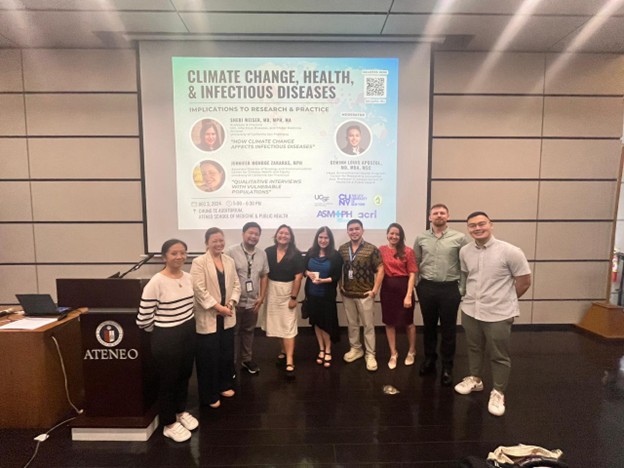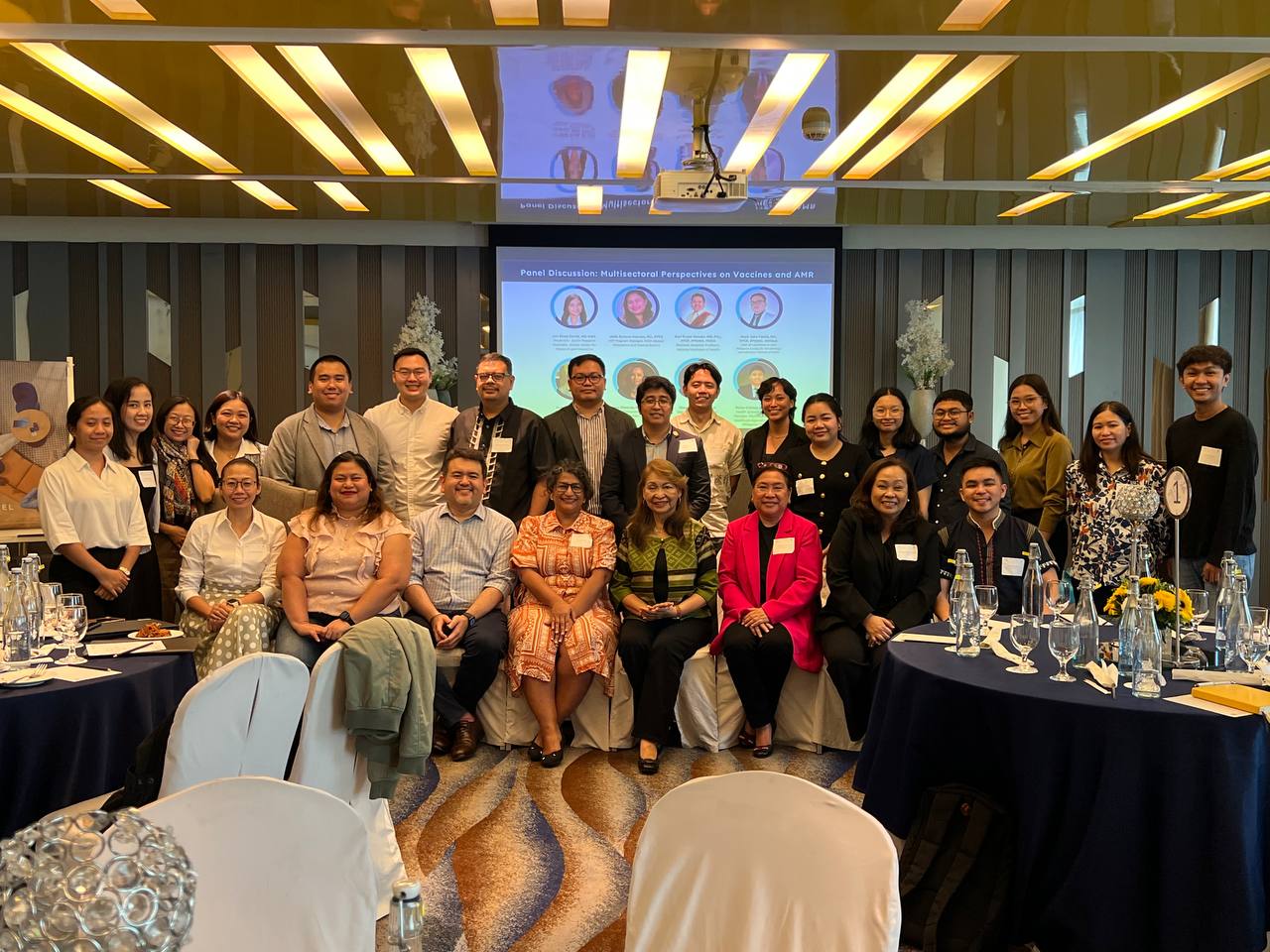
From Climate Crisis to Action: ASPMH forum explores health implications and research directions
The Ateneo School of Medicine and Public Health Center for Research and Innovation (ACRI), in collaboration with the University of California San Francisco (UCSF), the City University of New York (CUNY), and the Research Institute for Tropical Medicine (RITM), hosted a forum titled “Climate Change, Health, and Infectious Diseases: Implications to Research and Practice” on December 3, 2024, at the Chung Te Auditorium, Ateneo School of Medicine and Public Health, Ortigas Avenue, Pasig City. The event explored the complex interconnections between climate change and health, with a particular focus on infectious diseases, while providing participants with insights into conducting qualitative interviews with vulnerable populations.
Dr. Sheri Weiser, co-director of the University of California Center on Climate Change, Health and Equity (UC CCHE), delivered a presentation on the far-reaching impacts of the climate crisis on human health. She outlined the pathways through which climate-related events influence factors such as weather patterns, food and water security, air quality, and disease vector behaviors, all of which contribute to increased infectious disease risks. Dr. Weiser also highlighted critical research gaps and opportunities to address these challenges while underscoring the disproportionate impact of climate change on vulnerable and marginalized populations.
\
Dr. Sheri Weiser highlights the critical need for a health-focused approach to ensure the well-being of future generations.
Jennifer Zakaras, Associate Director of Strategy and Communications at UC CCHE, presented the application of qualitative research methods in health studies. She emphasized the importance of using qualitative approaches to understand the lived experiences of vulnerable groups and shared strategies for effectively engaging and centering these populations in health research.
Jennifer Zakaras shares insights from her qualitative research with adults living with HIV in rural Kenya.
This forum marked a significant milestone in ACRI’s ongoing 2.5-year research partnership with UCSF, CUNY, and RITM, which aims to investigate how extreme weather events influence HIV care outcomes in the Philippines. By fostering discussions on the intersection of climate change, health, and research methodologies, the event laid the groundwork for future evidence-based interventions to improve health outcomes in the face of climate challenges.
For more information on the forum or ACRI’s research initiatives, visit https://www.acri.ph/.
-

The Unseen Link: Vaccines and Antimicrobial Resistance in the Philippine Context
Antimicrobial resistance is already claiming lives, and the global pipeline for new antibiotics is shrinking. In August 2025, experts gathered to explore a critical question: Can vaccines become a frontline weapon against AMR? The science is clear—by preventing infections, vaccines reduce antibiotic use and slow resistance. But translating this into action means confronting data gaps, political barriers, and financing challenges. As one expert noted: "When we vaccinate, we reduce the frequency of these diseases. That means fewer antibiotics—used and misused." With no country in the Global South yet integrating vaccines systematically into AMR strategies, the Philippines has a chance to lead—if stakeholders can move from consensus to action.
-

Advancing vaccine uptake to mitigate antimicrobial resistance (AMR) in low and middle-income countries of South or South-East Asia
This project explores how strengthening vaccine uptake can serve as a key strategy to mitigate antimicrobial resistance (AMR) in the Philippines and across South and South-East Asia. By reducing the burden of vaccine-preventable diseases and the unnecessary use of antibiotics, the study aims to provide actionable recommendations for national and institutional stakeholders to better integrate vaccination initiatives into AMR control efforts, ultimately contributing to stronger, more resilient health systems.
